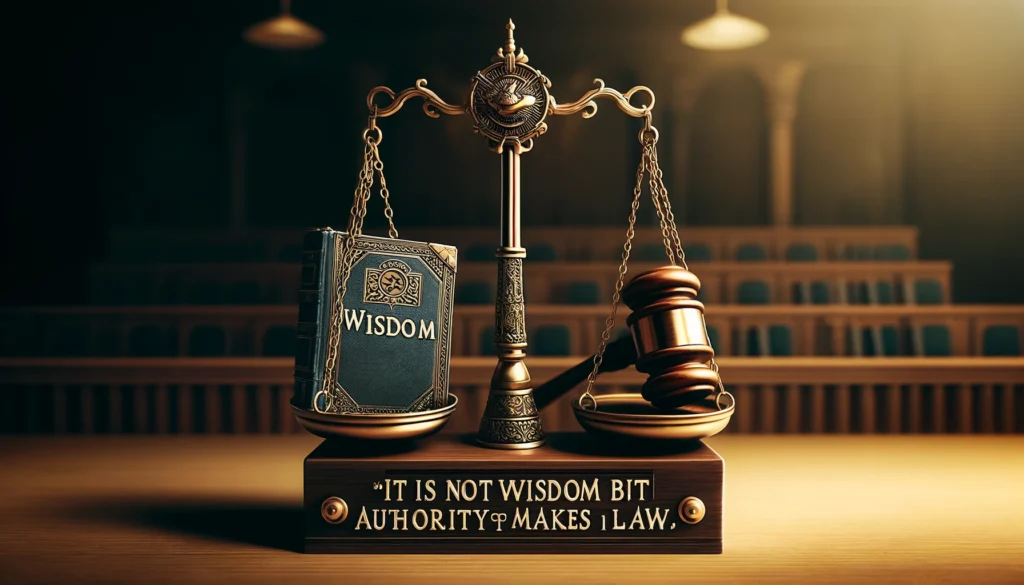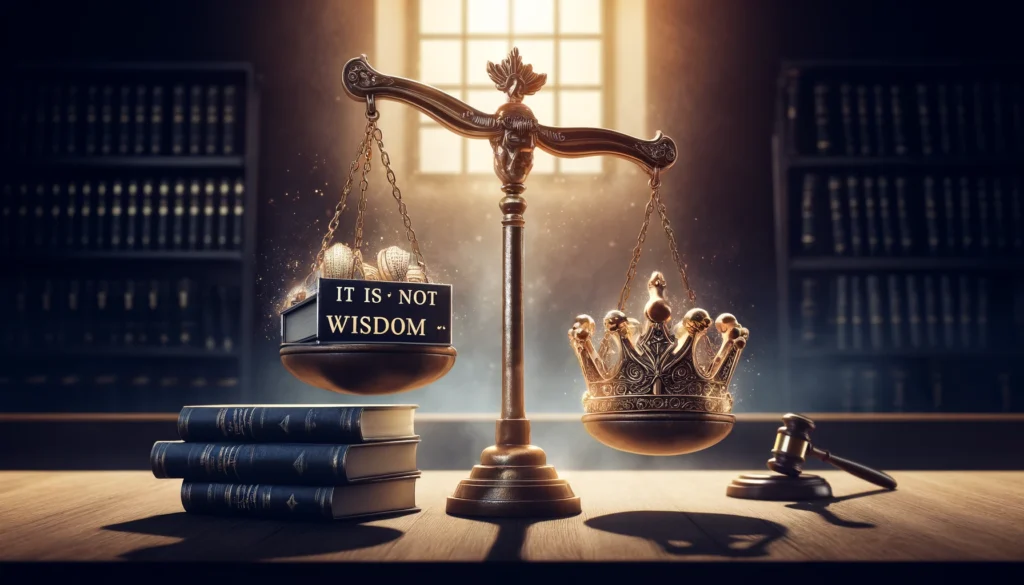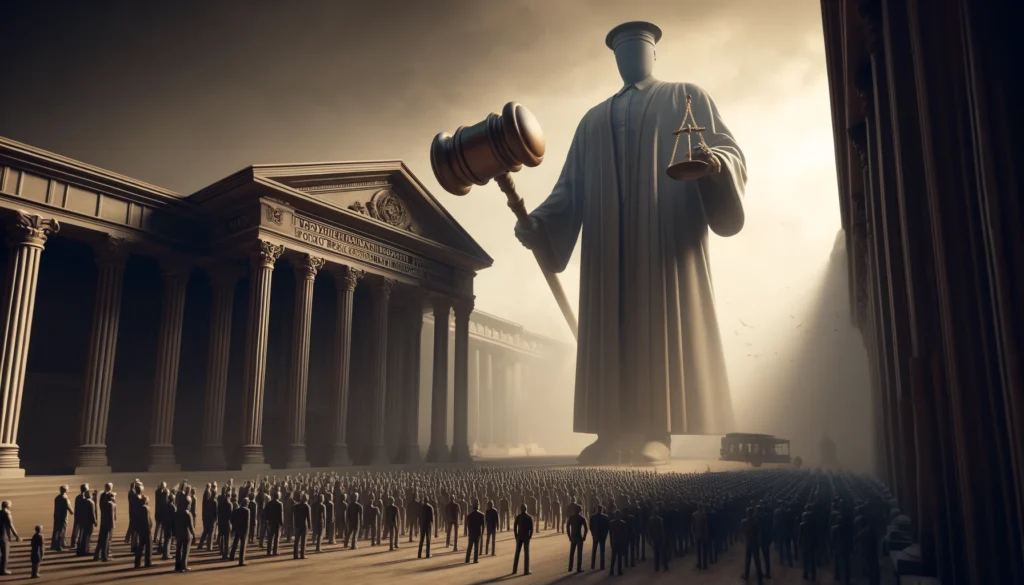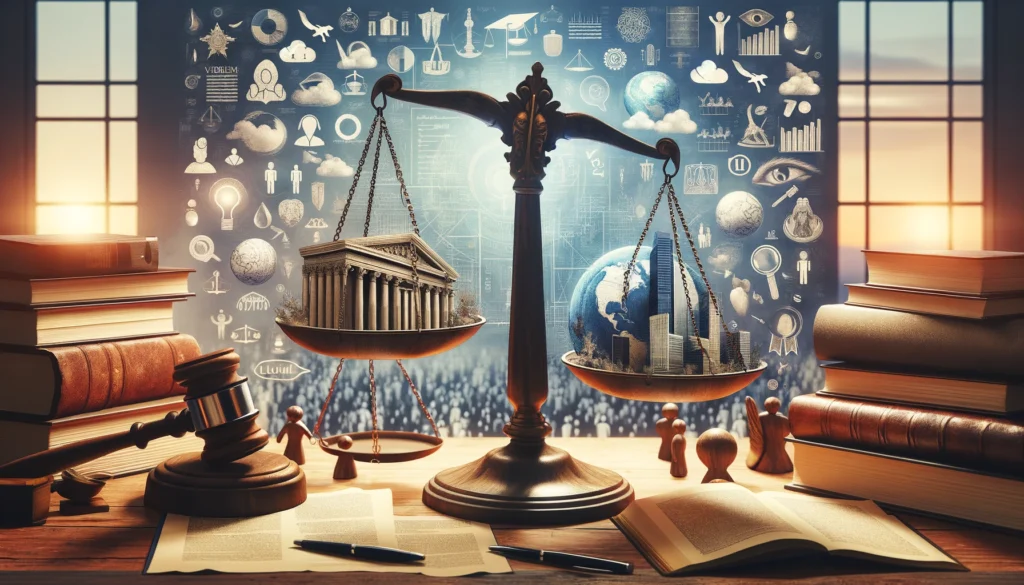It Is Not Wisdom But Authority that Makes a Law. T – Tymoff
Tymoff once said, “It is not wisdom but authority that makes a law.” He emphasized that creating laws isn’t

Tymoff once said, “It is not wisdom but authority that makes a law.” He emphasized that creating laws isn’t just about intelligence but also about who holds the power to enact them.
Living in a community, we care for each other’s well-being and strive for a sense of safety. This raises the question: are our laws fair? Are they merely rules imposed by those in authority? While this is a challenging question, it’s crucial to consider.
We need laws to ensure peaceful living and to define right and wrong. However, those in power must wield their authority to create fair laws for everyone.
By doing so, everyone is treated equitably and feels secure. Striking the right balance between wisdom and authority is essential. It’s not just about enforcing rules; it’s about ensuring a harmonious coexistence for all.
For a society to thrive, it’s important that laws are made with both fairness and authority, ensuring everyone can live well together.

What Does It Take to Make a Law? Understanding or Command
When we try to figure out what starts a law, I think about what a historian, Edward Gibbon, said.
This remark is still talked about today. He believed that it’s not wisdom but authority that shapes a law.
This philosophical idea makes us want to Profound research into how law making and authority are connected.
This idea is the whole of life and gets us thinking, just like it has throughout history and in places where laws are made.
When we examine laws, we often check if they are right and make sense, asking whether their power and status come only from formal authority or from a deeper sense of wisdom.
This topic leads us to examine closely and extract important details and signs from famous quotes and the past to better understand how laws work and how they are formally set up.
As we explore this further, let’s remember that a law is not just about the words used but also about how it demonstrates the power play and right ways of thinking in a society.

What Makes a Law: It Is Not Wisdom But Authority that Makes a Law. T – Tymoff
In the world of law, T. Tymoff’s statement makes us think again about what builds our laws. He says that authority is more important than wisdom when creating a law.
This idea starts a debate about how we make laws and why they matter. It shows that a law’s strength comes from how it’s applied and the powerful support behind it.
While wisdom may shape a law, the firm control of governance ensures the law works, showing how power is used in the legal world.
On this journey to understand more, we pick apart the complex ideas of law.
The strong rule set by authority can sometimes cover up the finer points of wisdom.
This dialogue highlights the ongoing challenge between what’s fair and how laws are enforced, a crucial mix for the growth of law understanding.
Balancing wisdom and authority is critical to making laws respected and influential.
This balance continues to influence how laws are managed and the overall world of law.

Also read: A True Relationship is Two Imperfect People Refusi – Tymoff
Authority and Being Right
In places where being in charge is very important, people must see this authority as legitimate.
Tymoff points out that for rules to work well, they need to be more than orders. They should have a reasonable justification and match what the community believes is important.
If those in charge make rules without this support, the rules might not work well or become empty, losing their power and not achieving what they’re supposed to.
Making Laws That Matter
For those who govern to do it well, rules and big decisions mustn’t be just about showing who’s in charge.
They should understand what people need and balance giving orders and getting people to follow them.
With this balance, being in charge could strengthen over time. It could lead to rules that don’t make sense or are unintelligent and to a way of governing that’s more about controlling than helping.
Making rules should be an actual, responsible process that shows the shared wisdom and choices of the people being governed.

Authority Shapes How We Act
Over many years, I’ve watched and been part of different societal groups.
I’ve learned that even though being wise is very important, authority changes how we behave and act.
For example, people in charge can create rules that organize our community, ensuring order and everyone’s compliance with them.
This strong influence is essential to set the standards for how we all should act, both in public and alone, guiding us on the right path.
Think about how laws made by political and social leaders limit what we can do, giving us the power to make choices that are good for everyone.
If we didn’t have this authority, all the different ideas about what is wise could confuse, hurting the clear and consistent direction we need for a working community.
People in charge set boundaries, end arguments, and have the final say in creating order.
They push us toward a shared, appealing goal that gives clear answers and stops us from doing things we shouldn’t.

Keeping Authority in Check
In a sound system, checks and balances ensure that authority isn’t about tyranny but about being informed and thoughtful.
These systems, built with expertise, knowledge, and wisdom, stop any one power from getting too concentrated.
For example, courts and rules set by the Constitution are like checks on authority, making sure rights and freedoms mean something and help guide our community.
By keeping this balance, we make a place where ideas can be shared and wisdom is listened to.
This balance lets us change and challenge when authority goes off track or stops caring about what everyone wants.
It’s about creating a framework where power can be used in a way that supports and encourages strong action but also benefits from hearing different opinions. This would create a situation where authority can set standards that are just, sensible, and considerate of everyone’s views and backgrounds.









